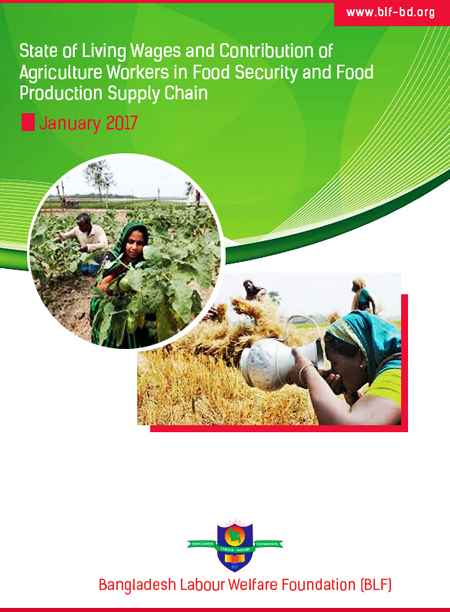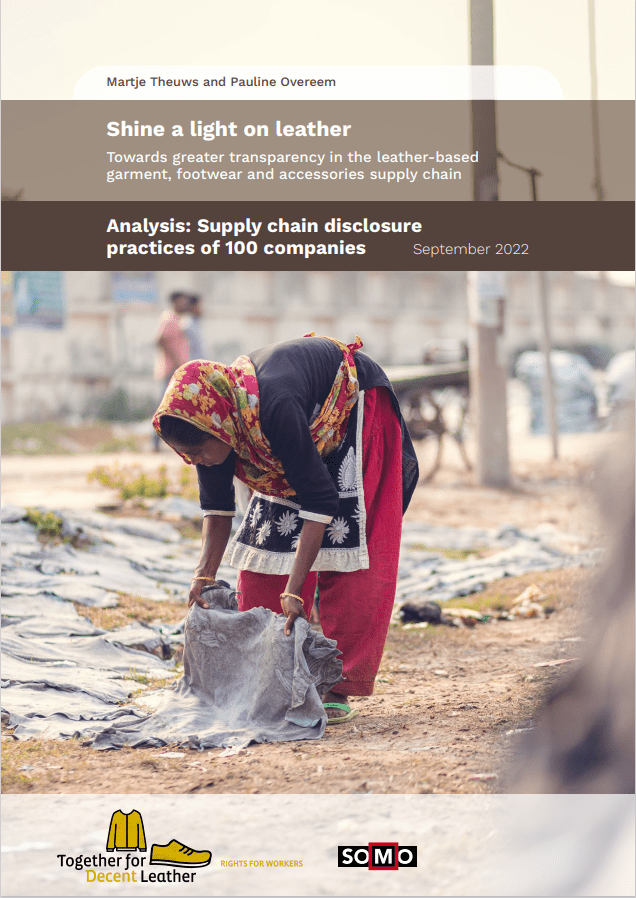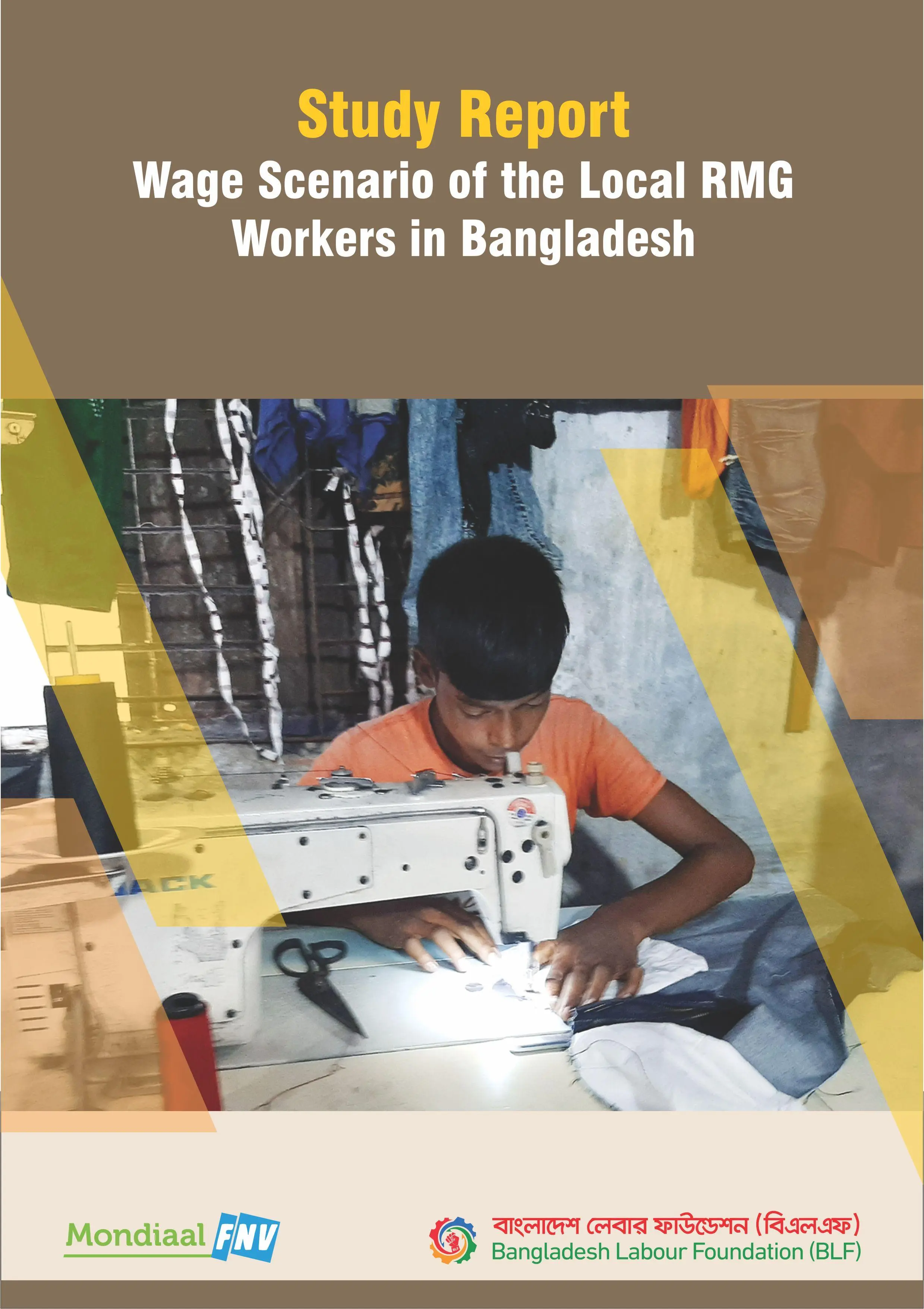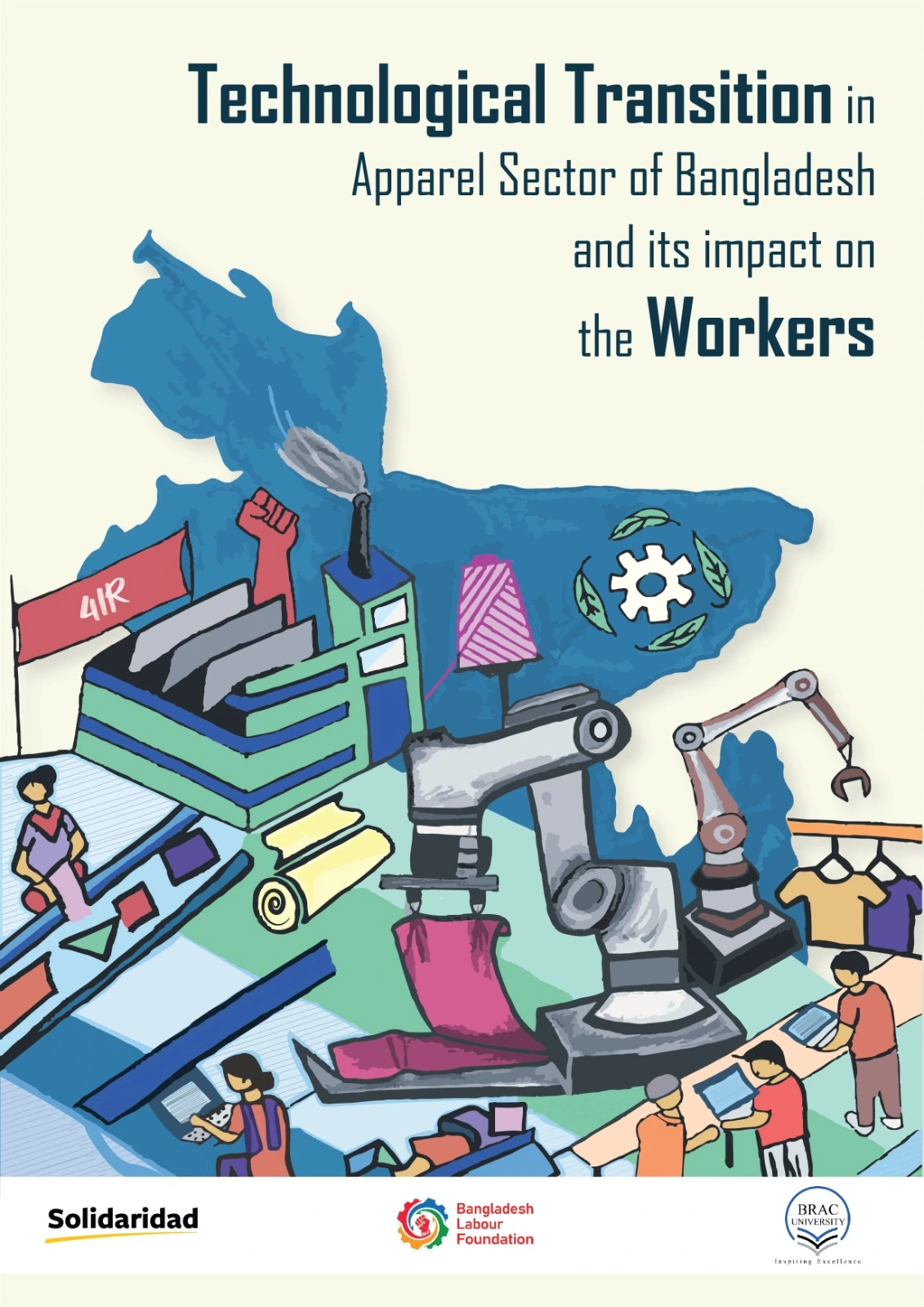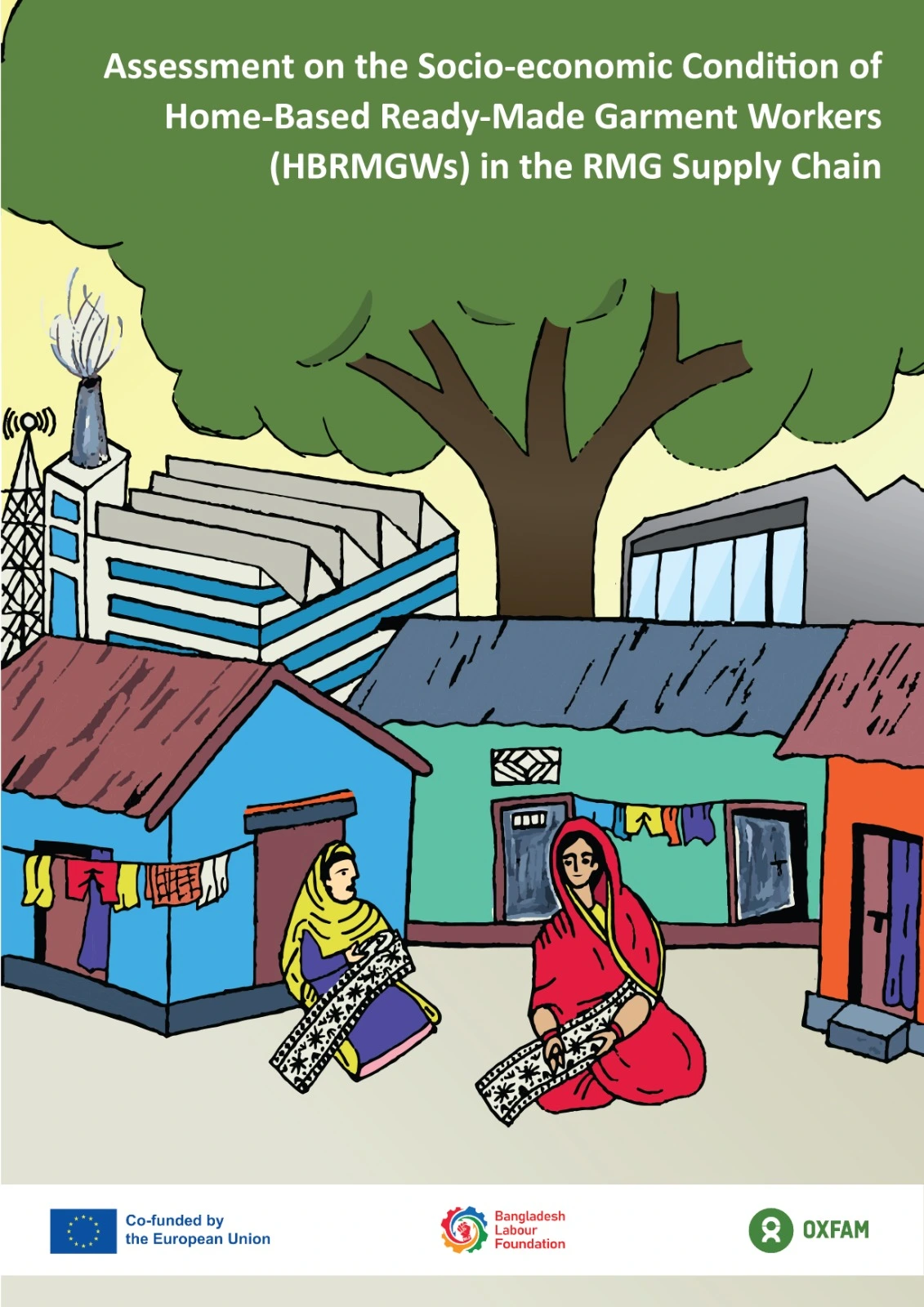Research & Study
Climate Change Impacts on the RMG, Leather, Leathergoods and Footwear Sectors: Implications for Workers and Industry with Pathways to a Just Transition
September, 2025
This study critically examines the existing and prospective climate change impacts on the Ready-Made Garment (RMG), Leather, Leathergoods, and Footwear sectors in Bangladesh, with a specific focus on the health, safety, and livelihoods of workers, many of whom are women and climate migrants. By applying a mixed-methods approach including surveys with 700 workers and extensive qualitative data from key stakeholders, the research assesses current socio-economic and health challenges, evaluates industry and stakeholder readiness for adaptation, and ultimately provides evidence-based recommendations for designing and implementing a worker-centered Just Transition Framework to ensure sustainable, inclusive, and climate-resilient industrial development in alignment with the Sustainable Development Goals (SDGs).
Key Words: Climate Change Impacts, RMG, Leather, Leathergoods and Footwear, Climate Vulnerability, Climate-Induced Migration, Industry Readiness, Sustainability Measures, Just Transition
Background
Bangladesh’s RMG, Leather, Leathergoods, and Footwear sectors are vital pillars of the national economy, contributing significantly to GDP and providing mass employment, yet they are increasingly and immediately threatened by the effects of climate change, such as extreme heat, flooding, and severe weather. This escalating environmental stress directly disrupts industrial productivity and compromises global supply chains, but critically, it also endangers the health and safety of millions of workers, particularly women who face heightened vulnerabilities and reproductive health risks. The existing challenges of environmental pollution, outdated technologies, and poor infrastructure compound these climate risks, subjecting workers to increased occupational hazards like heat stress, respiratory illnesses, and exposure to toxic chemicals. Despite the urgency, research on the interconnected dimensions of climate resilience, worker health, gender equity, and socio-economic security within these industries remains fragmented, with the concept of an inclusive Just Transition towards climate-resilient industries being largely underexplored, creating a critical knowledge gap that the study seeks to address.
Objectives
- To evaluate the direct and indirect impacts of climate change on RMG, Leather, Leathergoods and Footwear factory operations and workforce;
- To assess the awareness level, perception, and understanding of climate change and Just Transition principles among key stakeholders;
- To analyze the current state of climate preparedness in RMG, Leather, Leathergoods and Footwear factories;
- To Identify systemic barriers and context-specific barriers and formulate evidence-based, policy-relevant recommendations.
Key Findings
- Over 60% of worker households face severe financial strain directly linked to climate disruptions due to low average monthly income (BDT 13,208). This vulnerability is compounded by migration, as 91.5% are internal migrants, with 10.3% already reporting climate-driven displacement.
- A high majority (82.1%) of workers experience heat stress, leading to chronic headaches in 48.6% of them due to dehydration and poor ventilation. Furthermore, over half (52.1%) incur significant monthly illness-related costs, and one in four female workers reports menstrual irregularities linked to heat and chemical exposure.
- Climate change directly increases the cost of living for 82.7% of workers, resulting in a reported wage/income loss for 43.7%. This financial stress is significant, with one in three workers reporting stress or anxiety linked to financial strain and the fear of job loss.
- Approximately 24.1% of workers feel job insecurity due to climate change, and this is exacerbated by a severe lack of safety nets, as 39.7% report having no social protection benefits at all. Compounding this, 60% of workers believe climate change negatively affects their productivity.
- Key barriers to a Green Transition include a significant lack of alternative job opportunities (64.3%), low wages (49.3%), and a lack of skills and training for green jobs (47.5%). Consequently, worker priorities for a Just Transition overwhelmingly demand higher wages (74%), reskilling/training (88.2%), and better cooling & ventilation (74%).
Recommendations
- Strengthen monitoring and compliance by DIFE and develop a sectoral climate transition roadmap.
- Promote reskilling and alternative employment opportunities for climate and automation displacement.
- Invest in climate-resilient infrastructure and promote sustainable and green production practices.
- Ensure ethical sourcing and responsible purchasing practices, adhering to the HRDD framework.
- Expand social protection coverage and establish universal health insurance for all workers.
- Facilitate multi-stakeholder dialogue platforms to shape inclusive and evidence-based policy development.

Contact
Bangladesh Labour Foundation (BLF)
107 Bir Uttam C.R. Datta Road
Dhaka – 1205
Bangladesh

